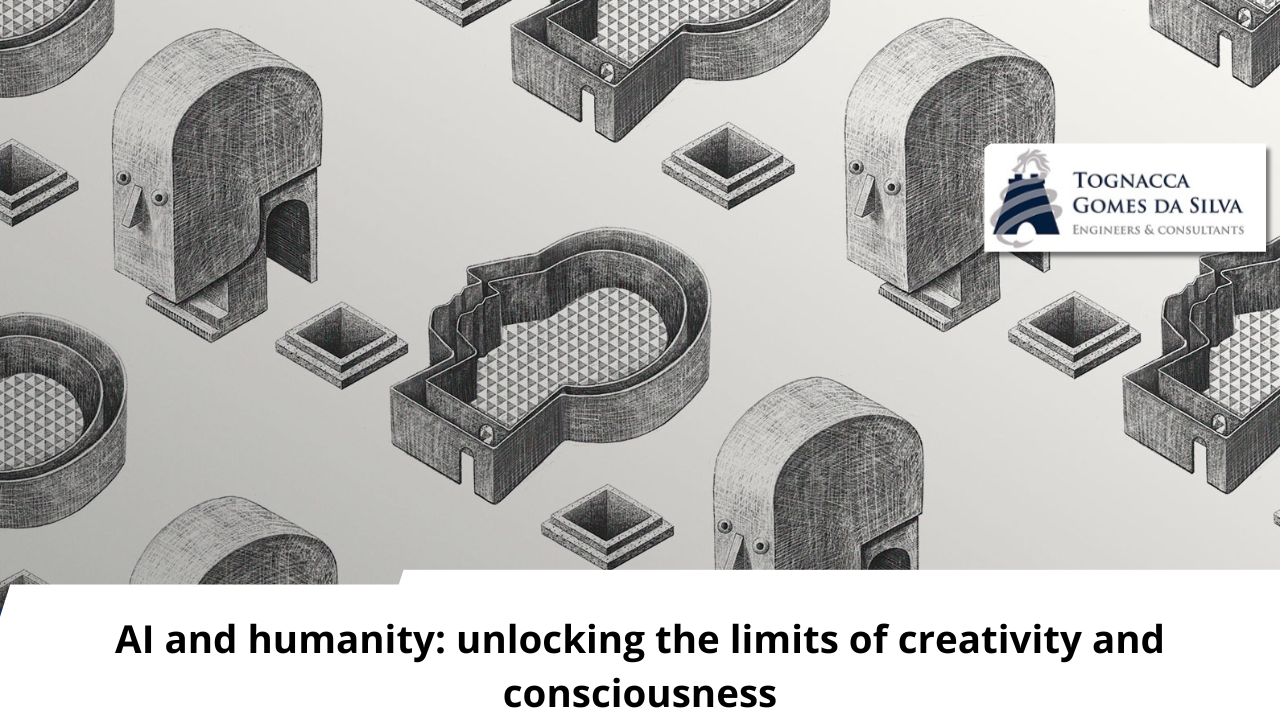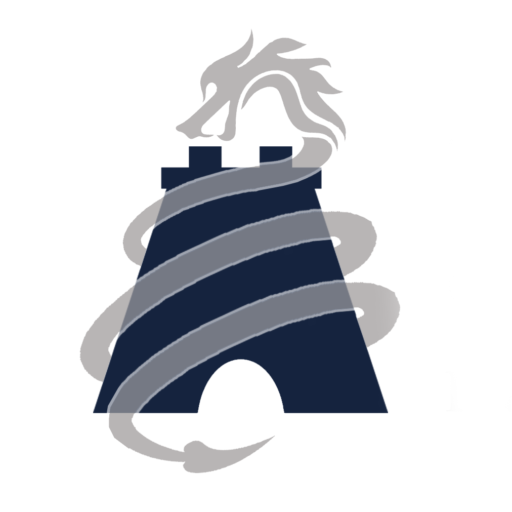The integration of Artificial Intelligence into corporate products and workflows is causing a revolution in the market. This transformation is not limited to technologically advanced sectors; is infiltrating diverse areas, from finance to graphic design, redefining the skills needed for modern workers. Generative AI, known for its ability to create new and original content from simple guidelines — so-called prompts — is requiring professionals to acquire a new set of skills, including understanding ethical issues related to AI.
Historically, automation and technology have been disruptive forces in the job market. At the beginning of the 20th century, the assembly line revolutionized industrial production, moving from artisanal manufacturing to more automated processes. With the arrival of computers and the Internet, digital skills have become essential. The emphasis was on learning to use software, navigate the internet and understand basic computing principles. Similarly, generative AI is transforming jobs that previously relied solely on human creativity and judgment. Now, skills like formulating effective prompts for AI and being able to interpret and refine their results are as essential as traditional skills.
Know yourself
The relationship between technology and philosophy is as paradoxical as it is complementary. While technology seeks to solve practical problems, philosophy delves into the ethical implications and social impacts of these solutions. This relationship, particularly in relation to Artificial Intelligence, opens up a wide range of existential and ethical questions. AI challenges our understanding of work, not just as a means of livelihood, but also as a source of identity and purpose. When AI takes on tasks that traditionally defined human abilities, such as creativity, a profound question arises about what really constitutes us as human beings. Furthermore, AI impacts the way we conceive the concept of intelligence, questioning whether it is an exclusively human characteristic or whether it can be replicated and even surpassed by machines. It will be?
These questions go beyond the technical scope of AI to touch on the essence of the human experience and the search for meaning and purpose in life. In a world where machines can learn, create and perform tasks autonomously, humans are forced to reconsider what makes them unique. This involves reassessing the value of human labor not only in economic terms, but also in its role in personal fulfillment and social development.
AI, therefore, is not just a technological advance; it is a mirror that reflects and questions the most fundamental aspects of human life. As we move into this uncharted territory, the philosophical questions that emerge will shape not only the future development of AI, but also the evolution of society itself. We are on the threshold of a new era where our understanding of ourselves and the world around us is being redefined by interaction with intelligent machines. The discussion about AI is ultimately a discussion about what it means to be human in the digital age.
This entire context raises profound questions about self-knowledge and the nature of human existence, a central concept in the philosophy of “know yourself”. Great thinkers throughout history, such as Socrates and Descartes, have emphasized the importance of self-examination in understanding our place in the world. But today, our world has Artificial Intelligence, increasingly present, more creative and more “intelligent”. Every day, AI challenges this (already fragile) understanding of our place in the world by taking on tasks that were considered exclusively human, raising questions about what defines us as human beings and how we find purpose and meaning.
And conscience?
Exploring consciousness from a philosophical perspective, especially in relation to AI, takes us to terrain discussed by great thinkers throughout history. Plato and Descartes, for example, emphasized the distinction between body and mind, an idea that resonates in the age of AI as we question whether consciousness is exclusive to humans or whether it can be replicated in machines. Contemporaneously, philosophers such as Daniel Dennett and John Searle debate the nature of consciousness and whether AI can truly possess such a characteristic. Dennett suggests that consciousness is more about function and less about substance, while Searle argues with the “Chinese Room” thought experiment that imitation of human understanding is not the same thing as real consciousness. I tend to agree with Searle.
These philosophical discussions challenge us to reconsider what consciousness is and whether subjective experience, something so central to the human condition, can be replicated or even surpassed by AI. We are approaching a point where the line between human and artificial intelligence becomes increasingly blurred, raising profound questions about what it really means to be conscious. So AI doesn’t just change our external world; it challenges us to look within, to question and reevaluate our own nature. In this process, philosophical reflections on consciousness gain a new dimension, becoming increasingly relevant in understanding ourselves and our place in a world in constant technological evolution.
Sociological perspectives: inequality and inclusion
From a sociological point of view, the implementation of AI in companies can accentuate existing inequalities or create new forms of exclusion. The need for reskilling may not be equally accessible to everyone, leading to a divide between those who can keep up with the pace of technological change and those who cannot. The World Economic Forum’s Future of Jobs 2023 report already raises this concern: the gap between workers’ current skills and future business demands points to the urgent need for reskilling and training. Six in ten workers will need training by 2027, but only half have access to adequate training opportunities.
As we have seen, generative AI is already challenging the traditional notion of creativity as an exclusively human faculty. In fields like graphic design, writing and music, AIs like GPT-3 and DALL-E are creating works that, until recently, could only be conceived by human minds. This begs the question: If a machine can replicate or even surpass human creativity, what makes human creativity unique? Similarly, in the past, the invention of the camera challenged artists to move away from realism toward more abstract and subjective styles, redefining the value and nature of art.
The integration of AI in the workplace also affects workers’ self-image and satisfaction. Historically, professions such as medicine, law, and engineering have been viewed as fields that require extensive training and unique human skills. But what will be the impact on society when AI is performing diagnoses or legal analyzes with greater precision than humans? Could professionals in these fields feel an erosion in their professional identity, similar to what artisans experienced during the Industrial Revolution with the arrival of mass production machines? In turn, the impact of AI on the economy is multifaceted, involving not only the creation of new markets and industries, but also the transformation of traditional sectors. From an economic point of view, AI allows companies to operate more efficiently, promoting innovations in products and services. However, this advance also leads to the displacement of jobs, especially in more routine and automatable functions. This phenomenon requires a reassessment of the labor market and the creation of policies that encourage the requalification and adaptation of workers.
And it’s not just in the corporate environment that AI brings a revolution. Generative AI is redefining human relationships with technology and changing social dynamics. The growing dependence on intelligent systems raises questions about privacy, autonomy and social control. The way people interact with each other and with machines is constantly evolving, challenging traditional concepts of community and collaboration.
There is still an imperative need to ensure that the benefits of AI are distributed equitably. This entails addressing the skills gap, ensuring fair access to opportunities, and mitigating socioeconomic disparities exacerbated by automation. Public policy, education and corporate strategies need to align to create an inclusive transition to an increasingly AI-driven economy, ensuring that no one is left behind.
Another point is perhaps more worrying: the concentration of AI development in large technology companies (Big Techs) has significant implications for the economy and society. These companies, due to their vast resources and innovation capabilities, are at the forefront of creating advanced AI systems. This raises concerns about a “virtual state” where a few corporations control AI technologies, turning them into essential new capital assets. This scenario potentially widens the power disparity between Big Techs and the rest of society, increasing existing inequalities and challenging traditional notions of governance and democratic control.
To address these challenges, collaboration between governments, the private sector and civil society is essential to develop policies that regulate the use of AI, ensuring that its development and benefits are equitable and accessible to all. This includes initiatives to promote transparency in algorithmic decisions, protect personal data, and ensure that the use of AI does not perpetuate biases or social injustices. Furthermore, it is crucial to invest in education and training to prepare the workforce for the changes brought by automation, thereby reducing the skills gap and promoting broader participation in the digital economy.
Brave (or not) new world
The integration of generative AI in the corporate environment and in our daily lives is a phenomenon that goes beyond mere technology. Its philosophical, sociological, social and professional implications are profound, requiring careful reflection and a holistic approach to navigate this new territory. As we move forward in this age of AI, it is crucial to consider not only the potential of the technology, but also how it aligns with and impacts fundamental human values. We are facing a paradigmatic shift that questions the boundaries between human and artificial creativity, and challenges our understanding of professional identity. Just as the introduction of the printing press in the 15th century redefined access to knowledge and the production of books, generative AI is redefining what it means to be a creative and skilled worker in the digital age. It is essential that discussions about the adoption of AI in the workplace include not only technical and economic considerations, but also deep reflection on its impact on workers’ dignity, identity and job satisfaction.
The fact is that training and skills development in the era of generative AI represent a challenge and an opportunity. As in previous revolutions, adapting to new technologies is essential for professional success. However, the peculiarity of this era lies in the need for a deep understanding of ethics and responsible use of AI, in addition to technical skills. This balance between technical knowledge and ethical awareness will be key to successfully navigating the future of work. And our work, as a society, is so that artificial intelligence is not limited to a marketing action to exploit human work, as stated by Brazilian neuroscientist Miguel Nicolelis, when arguing that AI ends up generating “total inequality in the relationship with workforce”. Therefore, the constant challenge of equalizing evolution and social equality remains.
( source: Fabio Correa Xavier/MIT Technology Review )



